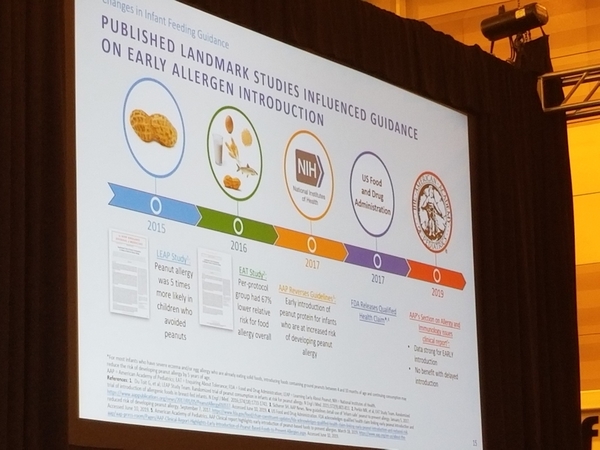The Asthma and Allergy Foundation of America (AAFA) recently exhibited at the 2019 American Academy of Pediatrics (AAP) conference. We learned the latest news in pediatrics and food allergies. We also spoke with doctors about the food allergy and asthma programs and services we offer. Kids With Food Allergies (KFA) is a division of AAFA.
Here are some of the news releases to come out of the conference:
- Giving a child an antihistamine, such as Benadryl® or Zyrtec®, for anaphylaxis may delay emergency treatment. Epinephrine is the only medicine that can treat anaphylaxis, a severe allergic reaction. Antihistamines may relieve some allergy symptoms like rashes or itching. But they do not stop the symptoms of life-threatening anaphylaxis.
- Could Drones Respond Quicker to Emergency Calls for Severe Allergic Reactions?
Drones could play an important role in delivering life-saving medicine during medical emergencies. This study showed that drones arrived faster than ambulances in Brooklyn, New York, during heavy traffic.
- Study Highlights Power of Family Resilience to Protect Children From Bullying
As many as 32% of kids are bullied because of their food allergies. This study looked at how a family works together to handle problems. It found this can reduce the risk of a child being bullied or bullying others.
Several food allergy sessions at AAP covered preventing food allergies, like the LEAP study. Studies show that introducing peanut protein early can reduce peanut allergies in children. The current guidelines from the National Institute of Allergy and Infectious Diseases (NIAID) recommend introducing foods as early as 4 months old. Then parents should give it with regular feedings. Some children will still develop food allergies due to other factors like heredity. But early introduction does reduce the overall number of children who have food allergies.




Comments (0)